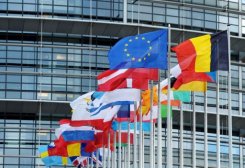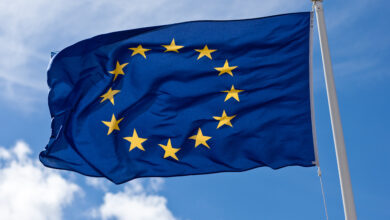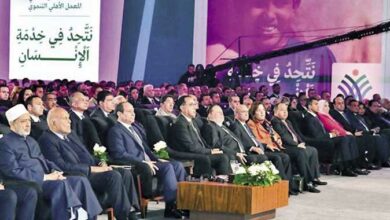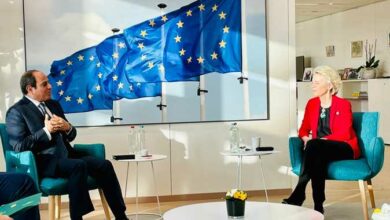
The European Union's envoy to Cairo urged Egypt's Islamist-led authorities on Thursday not to rush through legislation on civil society and NGOs that could curb an embryonic democracy.
Civil society was heavily restricted under former President Hosni Mubarak's rule, and many of those who overthrew him in 2011 are demanding guarantees of greater freedom for civic and political activity to help Egypt complete the transition to popular democracy that the Arab Spring seemed to promise.
But rights activists say a bill backed by President Mohamed Morsy's allies in the Muslim Brotherhood's political wing, the Freedom and Justice Party, is even more restrictive than the rules of the past.
"There is a great deal of concern on all sides that the time that is needed might not be taken," James Moran, head of the EU delegation in Cairo, told Reuters in an interview.
"An essential part of what we consider to be deep democracy is a free, open, transparent civil society," he said. "And since civil society played such an important part in the revolution in this country, … we think that this is something that is worth spending some real quality time on."
Despite Mubarak's fall, restrictions on civil society have remained a source of friction with Western states that help to finance non-government organizations working on human rights and economic, social and political development.
Last year, under the temporary rule of the army generals who assumed power from Mubarak, a probe into the work of international NGOs, some of them US-based, sparked a crisis in ties between the United States and Egypt.
US Secretary of State John Kerry said this week the Obama administration had "real concerns about the direction that Egypt appears to be moving in," citing recent arrests, street violence and a "lack of inclusivity with respect to the opposition."
The Freedom and Justice Party last year put forward a civil society bill that was praised by human rights activists. But that chamber, which it controlled, was dissolved in June.
New bill more restrictive
The draft being discussed now in the new FJP-led Parliament falls well short of activists' aspirations, requiring prior approval for many NGO activities and restricting their financing, the Egyptian Organisation for Human Rights said in a statement.
It also gives the security services a seat on a "coordination board" that would decide on matters related to foreign funding of international NGOs.
The FJP says the bill is still under discussion and Essam al-Erian, deputy leader of the party, says it will meet the needs of society and give NGOs unfettered freedom.
But Moran cited concerns about restrictions on foreign funding and on the freedom of association that is supposed to be guaranteed by a newly passed Constitution.
The procedure envisaged for securing prior approval of an NGO's activities "seems to many of us to go beyond the normal constraints within which these organizations would be operating," he said.
The EU deputy chief of mission was among a group of Western ambassadors who met members of the Shura Council last month to discuss the NGO bill.
After the session, the Dutch ambassador wrote a nine-point letter to the head of the Council's Human Development Committee summarizing what they saw as modern democracies' best practices for regulating civil society.
"Underlying all of this essentially is one motivation on the part of the European Union: We want to see Egypt's democratic transition succeed," Moran said.
"These changes in what we refer to as the Arab Spring, these positive changes, probably wouldn't have been possible without civil society," he added. "In many ways, those who have come to power now, after the revolutions, are those who previously were in some form of civil society."
EU foreign policy chief Catherine Ashton is due in Egypt on Sunday for talks with Morsy and opposition leaders in which freedom of expression and civil society are expected to figure prominently.





